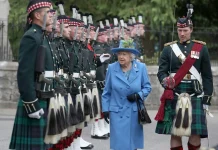The Prince of Wales received a private annual income of £23.6 million in the last financial year, but unlike his father, King Charles, Prince William has chosen not to disclose his tax bill.
As the heir to the throne, William, 42, is entitled to the surplus profits of the Duchy of Cornwall estate, which owns land in 23 counties across England and Wales. This surplus funds the official, charitable, and private lives of William, Kate, and their three children, Prince George, 11, Princess Charlotte, 9, and six-year-old Prince Louis.
Kensington Palace stated that the Prince paid tax at the standard UK rate after deducting official costs, but the specific amount was not revealed. William is not required to disclose this figure.
In contrast, when King Charles was the Prince of Wales and Duke of Cornwall, he voluntarily paid £5.9 million in income tax in his last full year holding those titles.
Charles’s annual review detailed his income and expenditure from the Duchy funds, including the number of valets, housekeepers, dressers, chefs, butlers, and gardeners he employed, along with his tax bill.
However, no such details were provided for the Waleses’ households. Instead of a lengthy report, a concise bullet-pointed annual update was chosen, including only the information Kensington Palace was willing to share at this stage.
The Duchy of Cornwall has a Crown exemption, meaning the Prince of Wales is not legally required to pay income or corporation tax on its revenues, but he chooses to pay income tax voluntarily. This practice was initiated by Charles in 1993 when he was the Prince of Wales.













